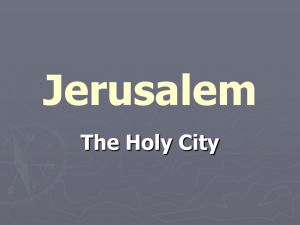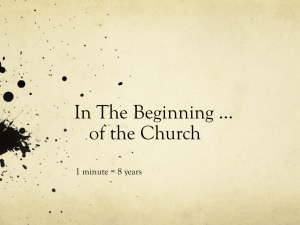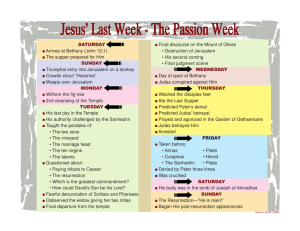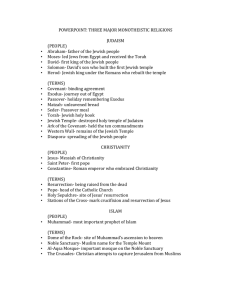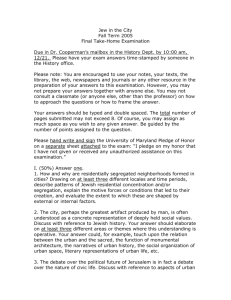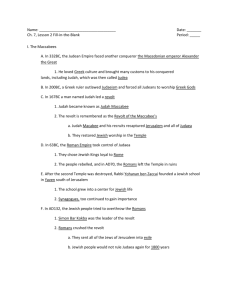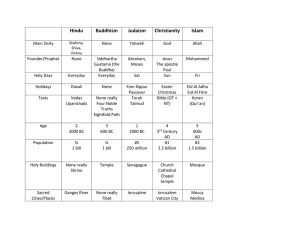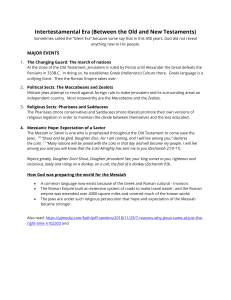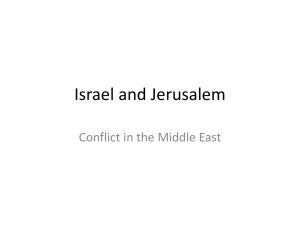Class Notes - Life in Jesus' Time
advertisement
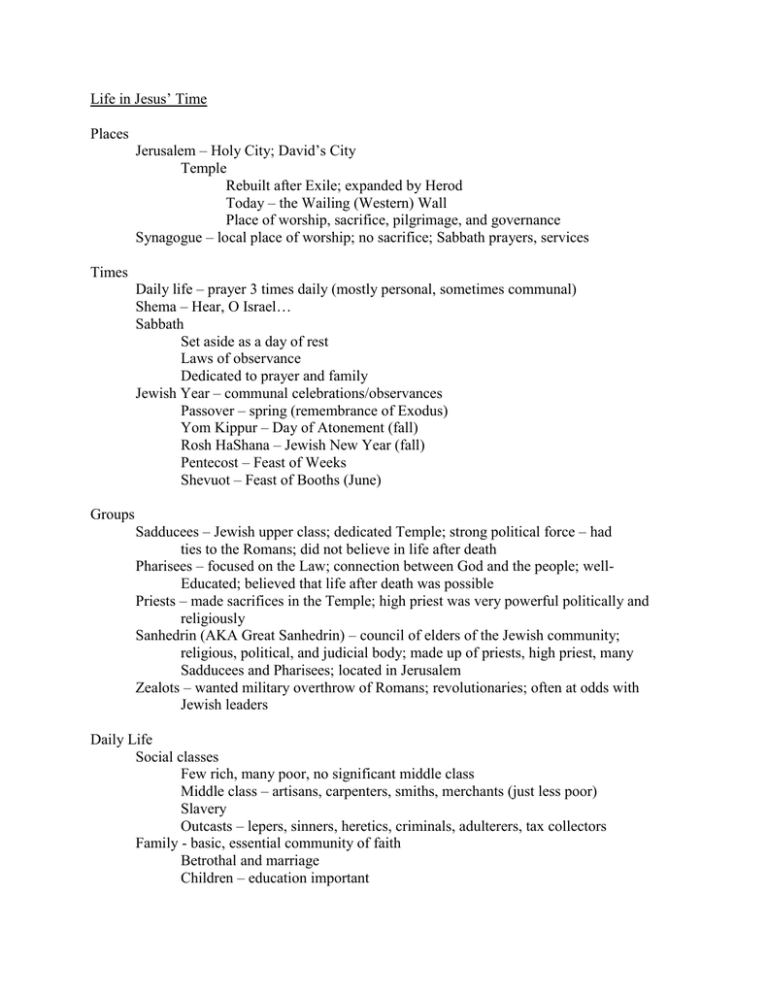
Life in Jesus’ Time Places Jerusalem – Holy City; David’s City Temple Rebuilt after Exile; expanded by Herod Today – the Wailing (Western) Wall Place of worship, sacrifice, pilgrimage, and governance Synagogue – local place of worship; no sacrifice; Sabbath prayers, services Times Daily life – prayer 3 times daily (mostly personal, sometimes communal) Shema – Hear, O Israel… Sabbath Set aside as a day of rest Laws of observance Dedicated to prayer and family Jewish Year – communal celebrations/observances Passover – spring (remembrance of Exodus) Yom Kippur – Day of Atonement (fall) Rosh HaShana – Jewish New Year (fall) Pentecost – Feast of Weeks Shevuot – Feast of Booths (June) Groups Sadducees – Jewish upper class; dedicated Temple; strong political force – had ties to the Romans; did not believe in life after death Pharisees – focused on the Law; connection between God and the people; wellEducated; believed that life after death was possible Priests – made sacrifices in the Temple; high priest was very powerful politically and religiously Sanhedrin (AKA Great Sanhedrin) – council of elders of the Jewish community; religious, political, and judicial body; made up of priests, high priest, many Sadducees and Pharisees; located in Jerusalem Zealots – wanted military overthrow of Romans; revolutionaries; often at odds with Jewish leaders Daily Life Social classes Few rich, many poor, no significant middle class Middle class – artisans, carpenters, smiths, merchants (just less poor) Slavery Outcasts – lepers, sinners, heretics, criminals, adulterers, tax collectors Family - basic, essential community of faith Betrothal and marriage Children – education important Patriarchal Food and meals Laws of Kashrut (Kosher laws) Sharing a meal very important Typical foods: bread, wine, fruits, nuts, and fish Meat – special occasions Home – simple, only a few rooms; adobe Clothing – robes to stay cool Mikvah (ritual bath) Work – mostly agriculture, some trades Major crops: vines, barley, wheat, olives Climate Hot, arid, dry (especially in south – Jerusalem) Water is always an issue North (Galilee) – more green, more variety in crops Political Situation Greek empire – Hellenism Romans – did not force religious conversion (smart politically) but demanded lots Of taxes (Jews paid Temple tax, too) Messiah – messianic expectations Meshiach (Hebrew) = messiah = anointed one = Christos (Greek) From David’s line Warrior-king to free Jews from oppression NOT divine – a human cannot be God
